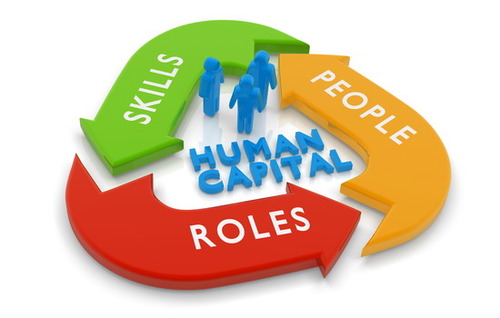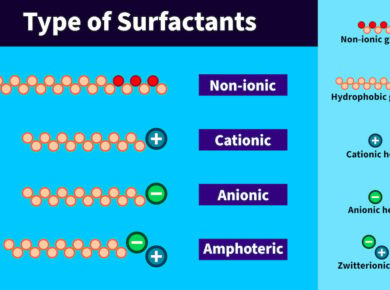Perhaps you are wondering what role education plays in human capital formation. There are many articles available online to help you learn more about this topic. These articles will inform you of the importance of education, while others will explain the role that human capital plays in economic growth. What is the role of education in human capital formation?
What is education Human Capital Formation?
Human capital refers to the process of acquiring skills and knowledge. It is an important factor in any country’s economic development. It helps increase the productivity of human resources. This starts with education. People who are educated are more productive and do better at their jobs.
The person’s overall health can also impact their performance at work. A healthy lifestyle is defined by a healthy diet, good housing, clean drinking water, and proper sanitation. Access to quality health care can increase life expectancy.
The best way to increase the country’s labor supply is to invest in education. Education gives you the ability to comprehend changes in society as well as scientific advances. Knowledge is also a benefit to society.
Education is also a key factor in controlling population growth. Higher education and skilled workers earn more than those who have less. They are also less likely than others to have children.
Investment in education is crucial for economic growth. Although it is often viewed as a waste, studies have shown that education can be beneficial.
Role Education Plays in Human Capital Formation
Education is an essential part of the development of human capital. Education provides knowledge and information that can help individuals make informed decisions on various subjects.
A strong work ethic is also a benefit. A strong work ethic is a key to a successful career. A person with a degree will also be able to take advantage of many economic opportunities.
Education can also increase productivity and help a country grow. This is particularly important in a developing country. To participate in the economy, developing countries require educated citizens. This will help them increase their gross income.
Education also provides information about technological and scientific advancements. These advances are useful for inventions and innovations. A well-educated workforce will also be able to make the most of the machinery and resources available.
Based on national education benchmarks, the gross human capital of a nation is calculated. Human capital refers to levels of education, health, and nutritional status as well as production capacity.
Importance of Education and Human Capital
Human capital formation is a key component of education. Investing in education will increase the productivity of the workforce as well as improve the country’s gross income. But, many workers are not motivated to learn general human capital training.
Henry Villard, a 1960 Association of Economic Analysis (AEA), presented a significant study about the importance of education. He criticized Becker’s method and suggested that it should not be based on market analysis to determine the optimal amount of education.
Villard claimed that Becker’s analysis was flawed because it did not pay enough attention to indirect returns. This would have the effect of overestimating the economic worth of human capital. Villard also criticized Becker’s focus on earnings and not the full economic impact of education.
Adam Smith introduced the concept of human capital in 1776. He emphasized an individual’s learned skills as the main source of wealth. Initial research on this topic was hindered by the inability to quantify human capital’s value. In the 1950s, however, metaphors like human wealth began to emerge.
Human Capital is of vital importance
Education is a key factor in the country’s health and productivity. Education improves the productivity of the workforce, which allows them to work more efficiently. It also makes it easier to adapt to new technologies. This helps to increase the country’s growth.
Ambitious, evidence-based policy measures in education and health can make a significant difference. These policies can improve quality of life and help to regain lost ground.
Human capital is complex. It is an intangible resource that can’t be traded or transferred like physical assets. It is, in many ways, the foundation of the economy.
Jacob Mincer, a modern neoclassical economist, first coined the term “human capital” in 1958. A lot of research has been done on this subject since then.
Education, training, and health are the foundations of human capital. These three areas will increase the productivity of the workforce. They are also essential to ensure a prosperous and healthy society.
Human Capital Formation
Education and Human Capital Formation are key factors in a country’s economic growth. Higher education tends to lead to higher earnings and greater spending. The nation’s cultural riches and gross income also improve.
Health and education are the foundations of human capital. These factors must be measured in detail to identify areas of strength or weakness.
The World Bank Group just released the Human Capital Index (HCI). This index measures how education and health impact productivity. This index is an indicator of the world’s ability to end extreme poverty by 2030.
Recent meetings of Finance Ministers from the World Bank Group highlighted the importance of human resources. It is possible to ensure that the most basic services reach the least fortunate by increasing social spending and emergency response projects in health care.
Human capital is the ability of a person to do high-level jobs, as well as their personal character or knowledge. It is an essential component of a country’s national wealth.
Human capital cannot be transferred like land or other tangible assets. It’s instead accumulated over time.
What are the sources of human capital formation?
Human capital formation is an economic process that allows individuals to realize their potential. It’s the accumulation of intangible assets that include knowledge, skills, or personal character. Education and other means can help you acquire knowledge.
The health sector is one of the main sources of human capital. This area is a great place to invest in, as it increases productivity and the economy. These investments include clean drinking water and therapeutic medicines.
Investment in education and migration are other major sources of human capital. For better opportunities and salaries, people move from one location to the next. People also have to pay for the cost of living in a new place, along with travel expenses.
People with more experience and higher qualifications are more likely to be successful than people without the same skills. Physically healthy people tend to be more productive.
Recent OECD research measures human capital based on different rates of return per country. This new index is based on years of education and includes rates for return to different education systems.
Economic Growth: Role of Human Capital Formation
Education is an important factor in human capital development. This can increase the productivity of a country’s workforce. This is also a way for individuals to perform better work.
There are two types: firm-specific and general human capital. General human capital is skills that are applicable to all employers. Specific human capital refers to skills that are specific and include individual instincts, social relations, and other skills that are unique to a particular employer.
Economic strength has always been based on tangible assets. Human capital is today the primary driver of economic growth.
The average length of time a person has been in school can be used to measure human capital. Studies show that education is positively related to economic growth.
Read More: What Are The Complete Details Of the PTE Exam
The development of human capital is dependent on the health of its inhabitants. Healthy people can perform better, contribute more to the economy, and be more productive. A healthy person can be assigned even mental work.
Economic growth requires that education and health services are spread across a country. Equity should also be part of the equation.
The Role of Human Capital Formation is Important
Human capital formation is a vital part of education. It helps people develop the skills necessary to work efficiently and make a living.
A nation can improve its productivity and quality workforce by investing in education. This leads to more economic activity, increased employment opportunities, and greater growth.
People with higher education are more productive, have a longer life expectancy, and are healthier. They are better equipped to deal with technological advances.
If an individual is unable to keep up with technology and innovation, their human capital could decline. Depreciation can also be caused by unemployment, injury, mental decline, or the inability to remain in the workforce.
A nation’s development and growth will depend on a skilled, creative, and hardworking workforce. The OECD works to establish a new role in education as human capital.
Education is a key factor in a country’s economic growth and can increase the country’s gross income. A higher education level and a larger educated population are also key factors in social development and prosperity.
A well-educated society improves employment prospects, and quality of life and encourages culturally and intellectually rich societies. It also increases productivity and decreases poverty.












